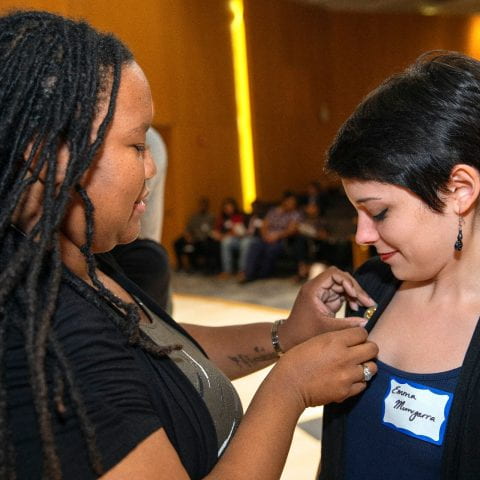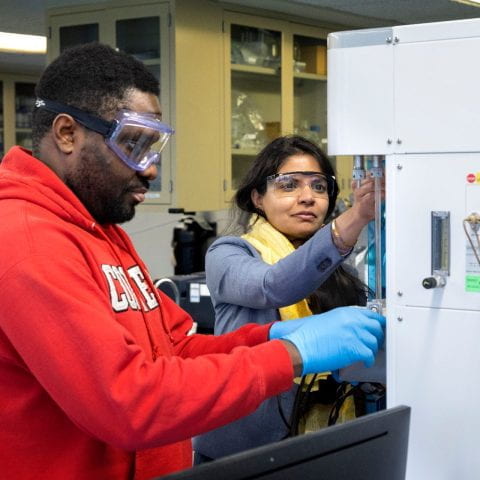“Talent is equally distributed across all sociocultural groups, but access and opportunity are not.”
– National Academies: The Science of Effective Mentorship in STEMM (2019)
Purpose of Faculty Advancing Inclusive Mentoring (FAIM)
The FAIM Resource Center supports faculty and their mentees in their development and advancement of mentee-centered and strengths-based mentoring practices within graduate education and the professoriate. The FAIM framework comprises a mentoring philosophy, key principles, and practical tools and resources that benefit both mentors and mentees.
FAIM Definition of Mentorship
A co-constructed and reciprocal relationship between a mentor and mentee who take a strengths-based and identity-informed approach to working together to support their mutual growth, development and success (NASEM, 2019; Windchief, 2019).
FAIM Goals
The FAIM philosophy, key principles, and core mutual expectation areas for mentorship provide a foundation for fulfilling mentoring relationships by:
- supporting mentors and mentees as they seek to develop an understanding of one another’s expectations, cultures, values, and sources of motivation.
- helping mentors and mentees develop a mentorship plan customized to their preferences and aligned to a mentor’s and mentee’s strengths, needs, and goals.
- providing practical resources and tools that can be adapted and adopted by mentors and mentees to be contextually relevant.
Additional Resources, Events, & News at Cornell
Opportunities for Professional Development & Community-Building
Signature Community Building for Graduate Students | Workshops and News for Grad Students and Postdocs Aspiring to be Future Faculty | Workshops, News, & Events for Faculty |
 |  |  |
Cornell University Graduate School’s Mentorship Article Series
As a graduate student, having a positive relationship with your mentor is the linchpin of your success, but how do you build these crucial ties and get the mentoring you need?
This academic year, the Graduate School is interviewing faculty-graduate student pairs about what makes their mentoring relationships work.
From practical tips to broader perspectives, these Q&As will equip you with ideas and tactics for improving your own mentoring relationships.
Learn more about the Mentorship Article Series here.
Featured External Reports & Practical Resources
The Science of Effective Mentorship in STEMM (NASEM)
The Science of Effective Mentoring in STEMM committee systematically compiled and analyzed current research on the characteristics, competencies, and behaviors of effective mentors and mentees in STEMM and developed a practical resource guide for mentoring practitioners to create and support viable, sustainable mentoring support systems. Resources on the site include a comprehensive report on the status of mentoring in graduate education as well as a informational tools (e.g., a podcast) to improve mentorship in STEMM.
Equity in Graduate Education Resource Center
The Equity in Graduate Education Resource Center advances equity in graduate education by conducting and translating research that is inspired by community needs, and offering high-quality, evidence-based professional development that provides faculty and administrators with tools and resources to create and sustain institutional change.
Cornell is a member of the national Equity in Graduate Education Consortium, making additional resources available to our community members.
NCFDD
NCFDD provides on-demand access to the mentoring, tools, and support needed to be successful in the Academy. They focus on four key areas: strategic planning, explosive productivity, healthy relationships, and work-life balance.
Cornell is an institutional member of the NCFDD, making individual memberships for faculty, postdocs, graduate students, and staff available for free.
